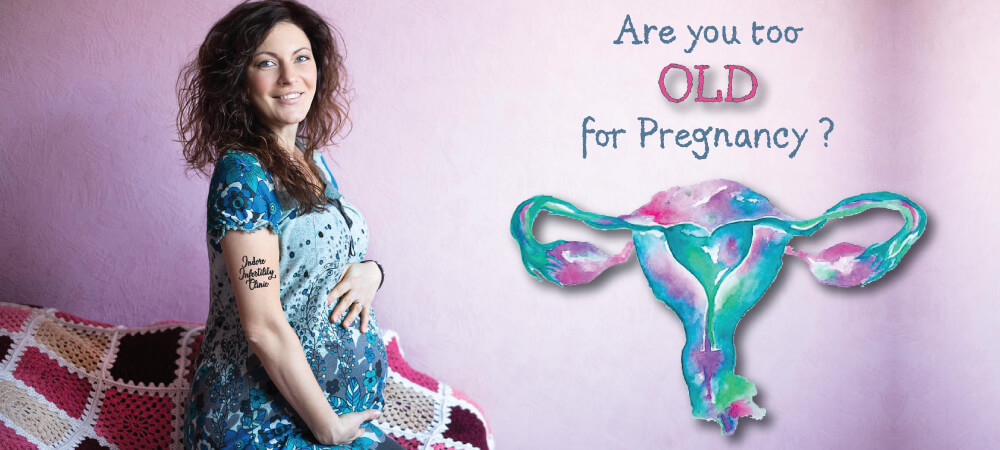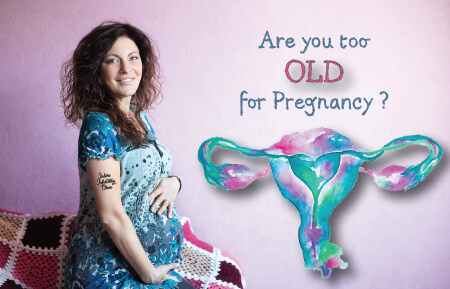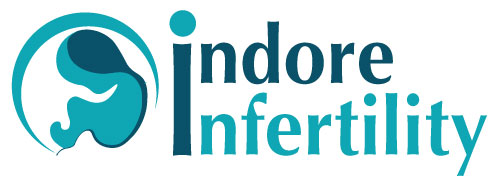

It is a known fact that increased maternal age has a huge impact on the function of ovaries, however what is the impact of increasing age on the function of Uterus? Does our Uterus age too?
What is the impact of age on our Uterus?
It is a known fact that the overall function of muscles and connective tissues weakens with increasing age. However, in case of uterus, this loss of function is exaggerated as soon as estrogen and progesterone hormones starts declining, this happens around the age of menopause which is close to 40 to 45 years.
The average age of menopause for Indian woman is close to 46 years. This age by the way is almost 4 years lower than their western counterparts.
After the onset of menopause, the uterus becomes small and remains small with a thin endometrium in absence of menstrual cycles. Hence logically, it is a reasonable assumption that the ability of childbearing by the uterus reduces with age.
Can women become pregnant even after onset of menopause?
Cyclic estrogen and progesterone is used to mimic the natural hormonal cycle in women. This causes menstrual cycles to re-start in women who have undergone menopause.
This therapy is called Hormone Replacement Therapy or HRT and is often prescribed for women who have Premature Ovarian Failure (POF) or Premature Ovarian Insufficiency (POI). The same therapy is also employed in women who wish to become surrogate mother to their relative (altruistic surrogacy).
With hormone therapy a woman can become pregnant even after her menses has stopped. However, since the function of ovaries cannot be initiated at an advanced age, IVF in older women often involves Oocyte Donation.
How does age impact the implantation potential of the Embryo ?
Genetic makeup of the embryo usually impacts the potential of the embryo to implant and progress into a viable pregnancy more than the age of the Uterus. There are many studies that have proven that the greatest impact of maternal age is on the chromosomal status of the oocyte which results in abnormal chromosomes of the resulting embryo.
However, issues with the uterine cavity itself, like polyps, fibroid, adenomyoma or scar tissues etc. do have a contributory role in reduced implantation rate.
To summarize, as compared to ovaries, the rate of aging of Uterus is slower.
Is there any age limit upto which pregnancy can be planned ?
Fortunately or unfortunately, there is no law yet, that mentions the maximum age till which a woman can undergo pregnancy. However, the ART guideline (Assisted Reproduction Technique) in India does put an upper limit of 55 years for females who wish to conceive using ART.
Females of advance maternal age, should be aware of the fact that there are many risks associated with pregnancy at an advanced age. Before such pregnancies are planned, the general medical health and fitness of such females should be carefully assessed.
Evidence suggests that complication rate of pregnancy at advanced age in post menopausal women is higher than women who get pregnant at a younger age. It is hence advised to discuss the pregnancy related risks in details with your fertility specialist if you have advanced age.
Bottom Line
Pregnancy is not just about childbirth, it is more about nurturing and caring for an infant until the child is old enough to tackle the world themselves. Childbirth is just the beginning of the parenthood journey.
A couple themselves is the best judge of their emotional, physical, financial and social health. If the couple thinks that they are capable of fulfilling the duties of parenthood at an older age, a Fertility Specialist can always assist the couple in fulfilling their parenthood dream.




